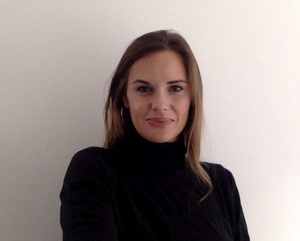6 tips for maintaining your health with an ever-changing freelance schedule
A few tips to help maintain good mental, emotional and physical health for a freelancer with an ever-changing schedule.
Five years strong and I would like to think that I’m pretty accustomed to the roller-coaster schedule that accompanies my freelance writing lifestyle. It hasn’t always been smooth sailing like it is today and still, I come across obstacles that make me wonder what it was that possessed me to become a freelancer!
When I made the decision to navigate my career towards writing and incorporate the freelancer schedule, I discovered a lot about my ‘work’ self. In particular, how good I was at procrastinating.
As a copywriter, you spend a proportionate amount of time at your computer, working alone. Collaboration is minimal and there will be hours that pass where I wouldn’t interact with anyone. This is when the mental struggle kicks in.
Table of Contents
1. Find a friend.
You could say I was a bit of a lone wolf when I started out as a freelancer, but that wasn’t by choice. My first job was writing for clients at a digital advertising agency. Because the company was exclusively online and everyone worked remotely across the world, there was a good community of us that communicated through slack channels. We discussed last night’s ‘Game of Thrones’ episode, exchanged Spotify playlists, helped out with some article headlines.
However, that real-life human interaction was lacking. I didn’t know anyone else who lived in the same city and had the same schedule as I had. It was the minor things that I really felt I was missing, such as asking basic, copywriting freelancer questions like: ‘how do you price your work?’ or ‘what’s the best way to put together a portfolio?’ or even ‘where’s your favourite place to work? and shall we meet there tomorrow and work together for a couple of hours?’
Since then, I have sought out the other copywriters hiding in the dingy cafes scattering the city. Having a fellow non-virtual freelancer on a similarly varying schedule really helps with not only the industry questions but also for the emotion support. They get it.
2. Keep your morning ritual.
 This is key in any industry you work in, however, working from home makes it easy to dismiss your daily routine, especially when you know that the office can be the sofa and your uniform is a pair of pyjamas.
This is key in any industry you work in, however, working from home makes it easy to dismiss your daily routine, especially when you know that the office can be the sofa and your uniform is a pair of pyjamas.
When I first started out, I would wake up late morning, read through my editor’s notes in bed for an hour, make coffee and sit at my desk in my pyjamas and work for another couple of hours before going for a shower and getting ready for the day.
I really revelled in the luxury of working from home. But alas, it would only be luxurious for a brief amount of time before my mind suffered and, following shortly, my work.
Now, I wake early, coffee, smoothie, shower and out the door. I seldom work from home now – with everyday distractions, housemates in and out of the door, I prefer to keep my work life separate from my home life.
Which leads me to my next lesson…
3. Find a space you work well in – and treasure it.
I have a list of my favourite work hot spots, which I alternate depending on the project or how I’m feeling that day. There are many factors that come into play, but each of my sacred workspaces serves an individual purpose for my personal and professional needs that day. Finding the right workspace is vital to keep the mind focused.:
Firstly, the space has to have strong, consistently working Wifi – that’s a must. From there, the necessities vary. I enjoy working in the library – there’s air-conditioning, large tables and, if it’s not too busy, enough silence to really concentrate on the task at hand.
If I have things to finish off over the weekend, there’s one particular café I like to work in – the background noise is more soothing than distracting and I can sit in the back with one cup of coffee for four hours without any disturbance.
I have my favourite space with a large terrace if I want to work outside. If I want dark and dingy, I have a quiet café for that. If it’s a Friday afternoon, I have a few things to do but nothing too mentally strenuous, I have my favourite bar/café with comfortable benches, great service and reasonably-priced beer on tap.
* * *
One thing that really affects my relationship with my ‘sacred space’ is the time it takes for me to walk there from home.
Walking from home to a workplace is not only good for my physical health, but it also serves as part of a pre-work, mental-preparation, meditative ritual. This is a chance to listen to some music, clear the mind and go through the things that need to do that day. There are some days that require longer walks than others.
It is a part of my schedule that I have truly come to love and depend on. A practice that I wouldn’t take from my hectic freelance work schedule.
4. Don’t forget your physical health.
Aah yes, the fitness side of your schedule. This is something that personally, I’m not a fan of but I know it’s important.
If you’re like me, and you’re not particularly fitness-inclined, opt for yoga. Yoga is good for both the mind and body – so you’re killing two birds with one stone when it comes to maintaining your health.
I also enjoy an early morning swim in the sea. I would meet with a couple of friends about three mornings a week in the summer and go for a 30-minute swim. That would really set me up for the day.*
During the winters, I revert back to the confines of the gym or take part in classes.
*N.B. I live in Spain, so pending the country of residence, you may want to ignore this suggestion.
Continue reading more tips and tricks about becoming a freelancer:
9 surprising things I’ve learned in 5.5 years of freelancing.
5. The list.
If you have a lot on your plate and you find it gets a little overwhelming, write a to-do list and split it up throughout the week.
I remember years ago I read that when writing a list, include all the thing you have to do for a project, whether they’re the big things, or the little things, and start off with completing the smaller things first. There’s a feeling of accomplishment when ticking the boxes, and if you get through the list quickly, you’re only left with the big thing to do, and it doesn’t look so daunting.
I recommend downloading BEAR: it’s easy-to-use for note keeping and to-do lists.
6. And finally: Zen. Out.
If you find that you’re at your last tether – your working with a difficult client, you’re not content with your work, the project isn’t taking shape like you hoped it would. Just take a moment and breathe.
Close the laptop lid, turn off your phone and hide your notepad in the back of a cupboard. Meditation is one of the greatest things I’ve discovered and I’ve only just incorporated it into my hectic schedule this past year. Incorporate it into your hectic schedule today. Alternatively, you could just pour yourself a glass of wine.
 About the author:
About the author:
Beginning her writing career as an editorial intern at a local Barcelona magazine, Heather has continued to write, edit, transcreate and proofread over the past five years. Heather is currently based in London, continuing as a copywriter and photographer.



 About the author:
About the author:

Trackbacks & Pingbacks
[…] Read another article by Heather […]
[…] 6 tips for maintaining your health with an ever-changing freelance schedule. […]
Comments are closed.